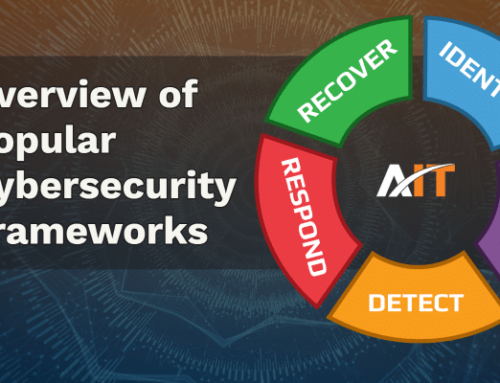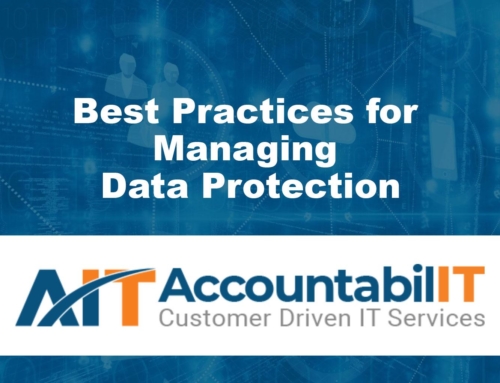Encryption: It’s an essential component of a comprehensive cybersecurity strategy. However, businesses too often take a patchwork approach to encryption deployment and management and as a result, open themselves up to costly cyberattacks.
Learn more about the impact poor- and high-quality encryption can have on your business’s success.
What Is Data Encryption?
Data encryption is a process through which your business’s data becomes unreadable. It works by scrambling data into a code, also known as “cipher text,” that no one can break unless they have the key. Once it reaches its intended recipient, a private “key” decrypts the data and returns it to its original form.
There are two types of encryption: symmetric and asymmetric. Symmetric encryption is any encryption technique that uses the same key to encrypt and decrypt the data. Asymmetric encryption, also known as public-key encryption, utilizes a public key and a private key to encrypt and decrypt.
No matter the technique, most advanced computers struggle to break strong encryption codes, which is why this security tool has become so commonplace among businesses. However, this is only the case with quality encryption. There are a number of different data encryption algorithms to choose from, and not all of them are going to do a great job of protecting your data.
Outdated algorithms, for example, use decryption keys with smaller bit sizes, which means fewer guesses are required to crack the code. This is why data security standards, like the National Institute of Standards and Technology (NIST), require keys of at least 128 bits.
Key size isn’t the only factor in the quality of your encryption. Poor key management and a lack of other security measures can still leave your data vulnerable.
The Consequences of Poor Encryption
Bad encryption can easily lead to costly data breaches. Short, insecure encryption keys, for example, make it easier for attackers to execute brute-force attacks, giving them access to not just a single user’s data, but entire databases full of sensitive information. The bad actor could also gain access to admin credentials and gain total control of a server. In other words, you don’t want to take your chances with bad encryption, especially considering that ransomware attacks, which utilize encryption, continue to increase in number and sophistication.
Ensuring Your Data Is Encrypted & Secure
Select data encryption software
If you haven’t already implemented data encryption solutions, there are plenty of options available. Most modern operating systems, such as Windows and OS X, have their own built-in program. Additionally, you can install various third-party programs for even more comprehensive encryption protection.
Encrypt all sensitive data
Any sensitive data should be encrypted. This generally includes any personally identifiable information, such as customer data, and confidential business information, such as strategies and proprietary products.
Run vulnerability tests
Cryptography isn’t always perfect, and you don’t want to become aware of any weaknesses after it’s too late. Giving you an attacker’s perspective on your applications, a vulnerability test will help you identify and resolve weak encryption.
Don’t neglect your key management
As the NIST puts it, your encryption key is like the combination to a safe. If that combination is revealed, it won’t do anything to protect what’s inside no matter how strong the safe is. To keep your key (and data) secure, you need key management procedures and policies for each stage of the key lifecycle, from generation to destruction.
Don’t rely on encryption
Encryption is a core component of a robust cybersecurity program, but following the strictest data encryption standards (DES) and best practices doesn’t automatically mean your data is secure. Leverage other cybersecurity tools to support your encryption and data protection efforts.
What Does Data Encryption Do for Your Business?
The purpose of data encryption is to protect your sensitive data, but what does that actually mean for your business? When implemented and managed correctly, data encryption can…
Help you maintain compliance
Regulatory frameworks like HIPAA require data encryption. Others, however, do not. Many data laws simply state that every business must implement sufficient security measures to protect the privacy of their data subjects. As a component of your larger data protection strategy, data encryption can help you stay compliant.
Help you secure your remote workforce
Businesses everywhere have adopted hybrid or fully-remote work models—and the cybersecurity risks that come with them. Remote workers often use personal devices to store confidential information, and supervisors don’t know what cybersecurity measures are being used to protect that data. By offering tools like a company-wide virtual private network (VPN), employers can help ensure all sensitive data is encrypted and protected.
Help you protect your reputation & bottom line
From potential ransoms and lawsuits to lost revenue, the financial consequences of a data breach are no small matter. In 2022 alone, the average data breach cost in the United States was $9.44 million. Additionally, customers are more concerned about security than they were in the past. By demonstrating that you adhere to certain encryption standards, you can safeguard your bottom line and give yourself a competitive advantage.
Stay Encrypted, Stay Protected.
As an award-winning Managed Security Service Provider, we’re here to offer day-to-day support and long-term solutions across all areas of your cybersecurity. Reach out today to learn more about how we can aid (or kick-start) your encryption initiatives and deliver other right-sized solutions to improve your overall security posture.




